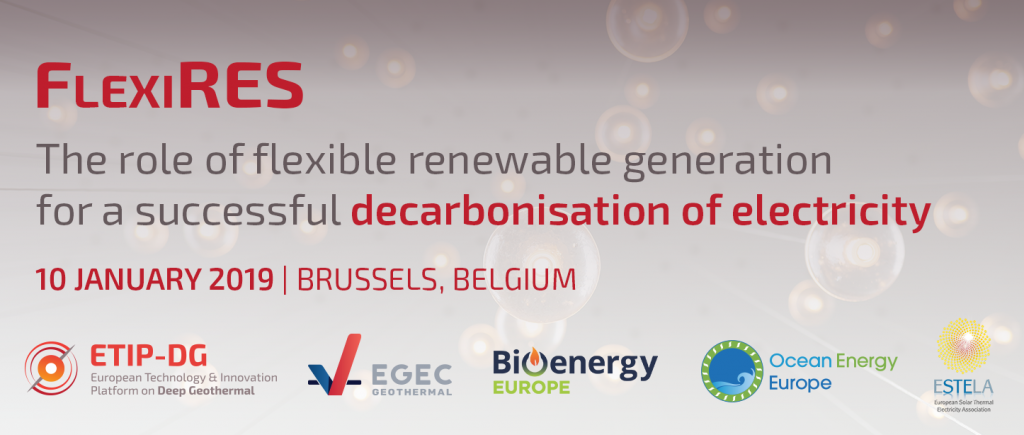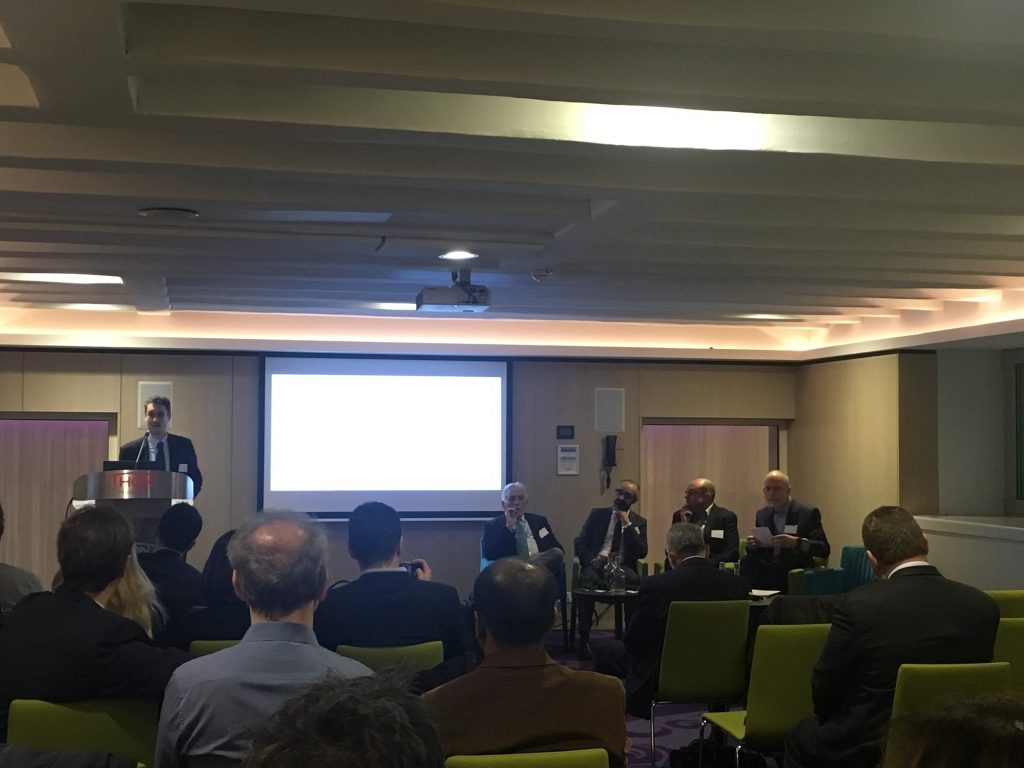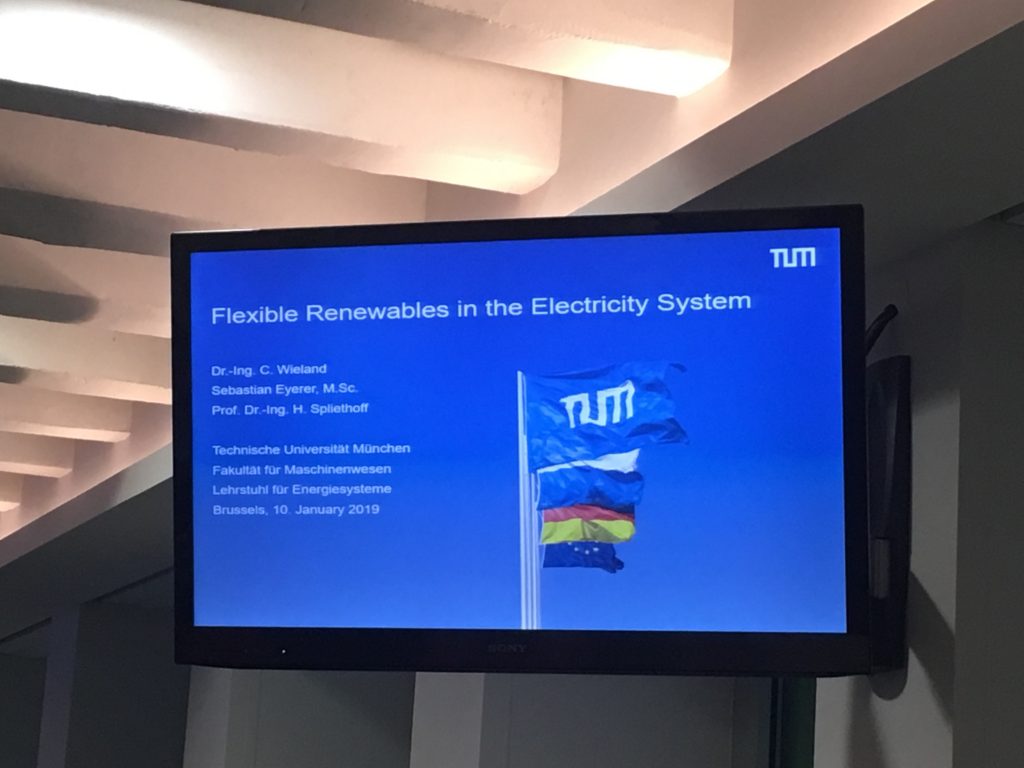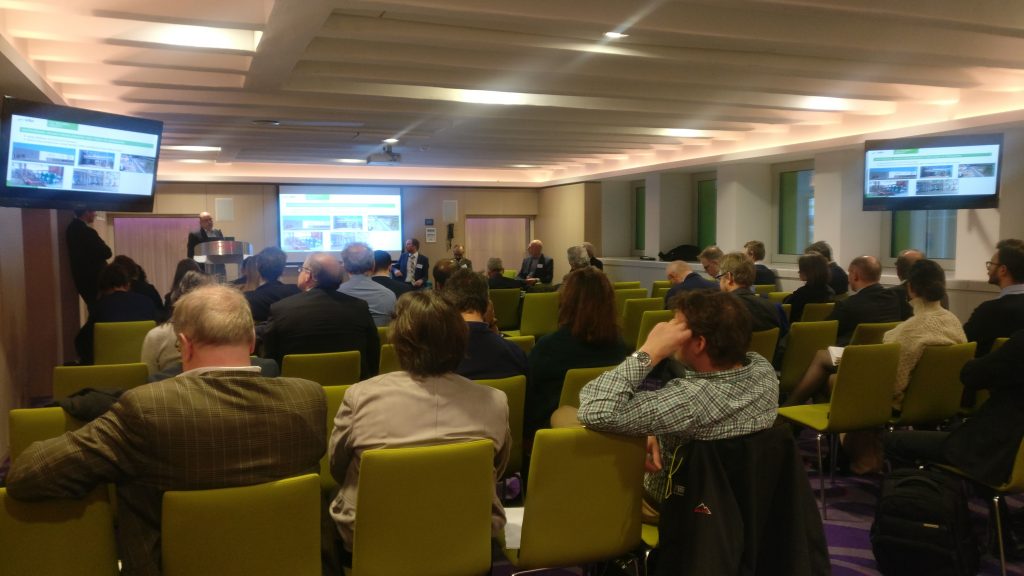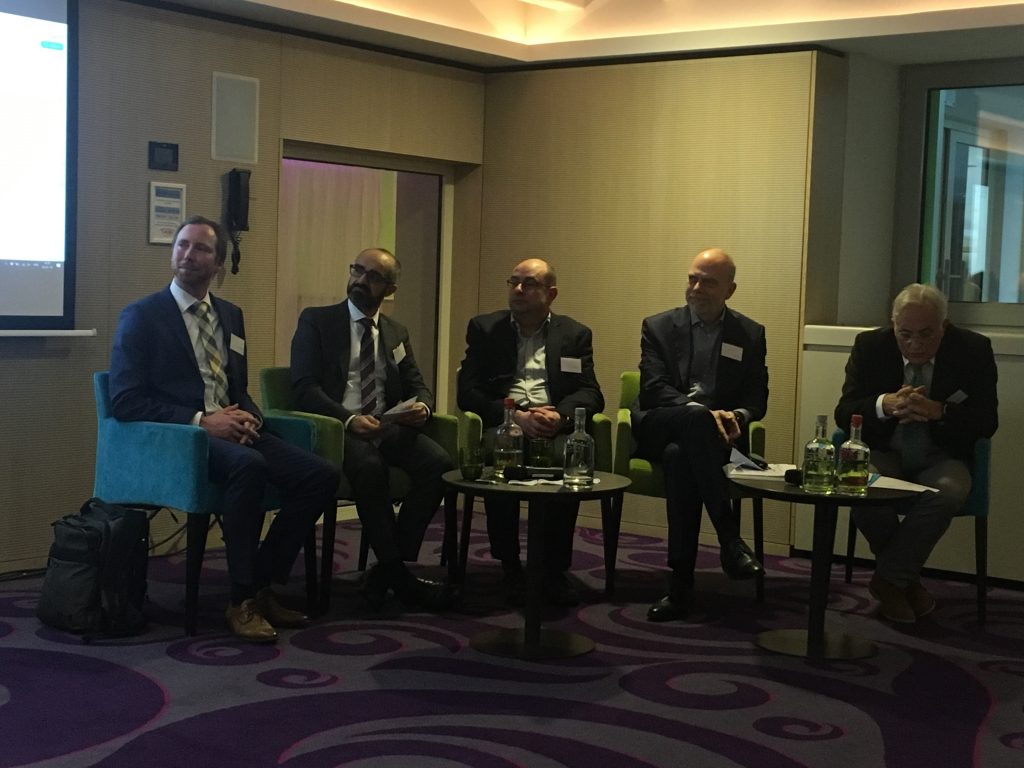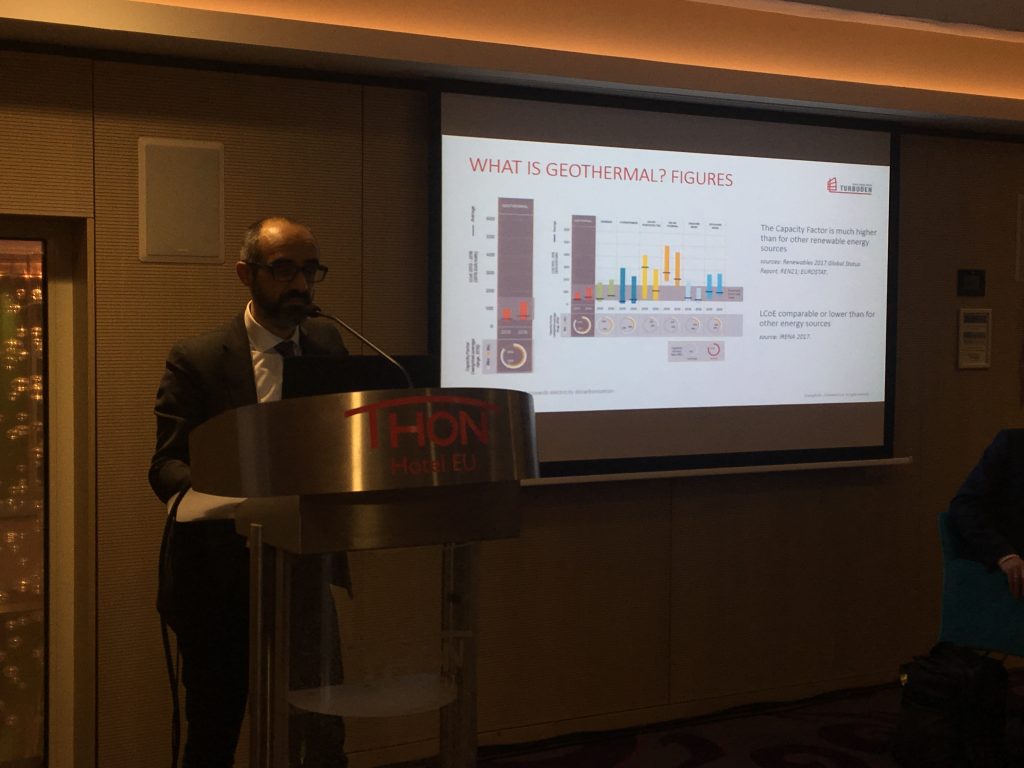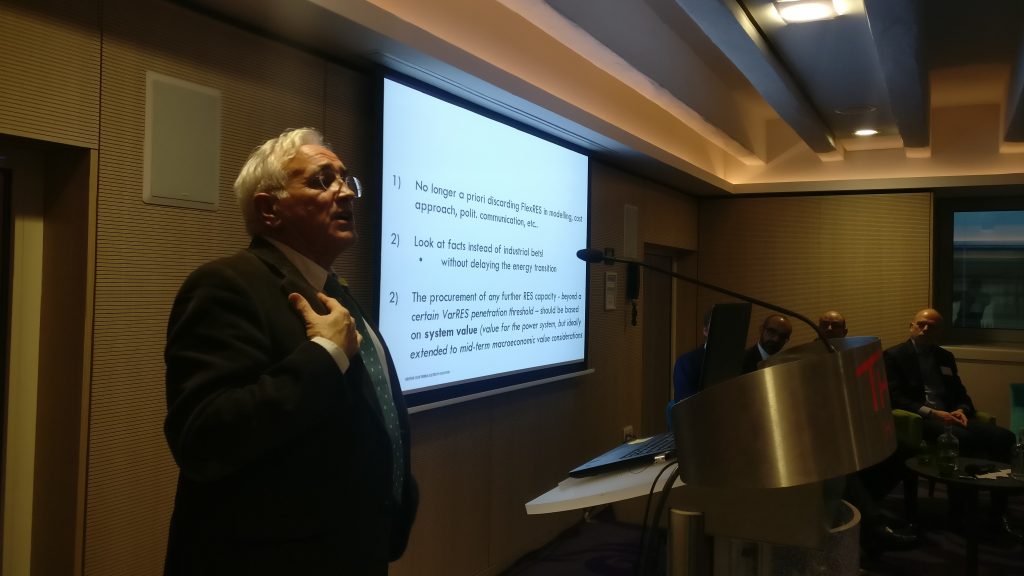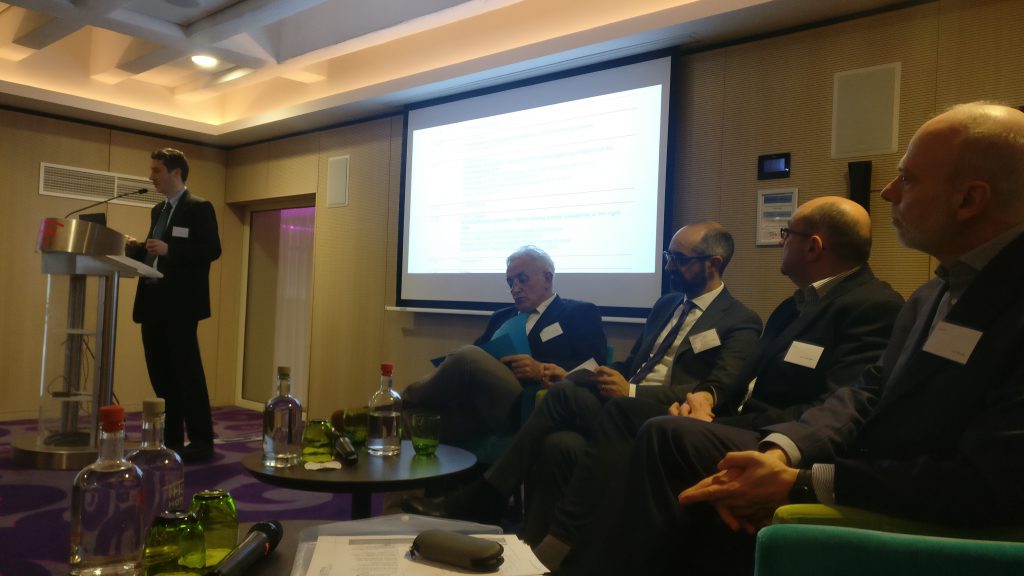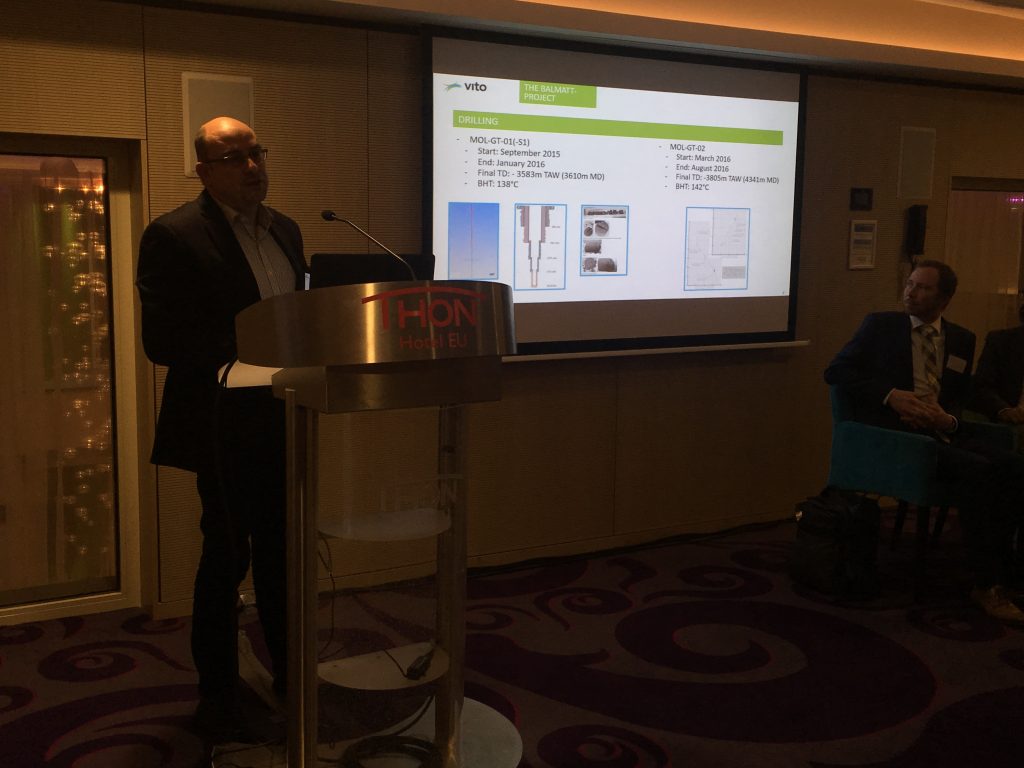FlexiRES: The role of flexible renewable generation for a successful decarbonisation of electricity
Brussels, 11th January 2019 – Flexible and dispatchable renewable generation technologies have an important role to play for a full and cost-efficient decarbonisation of the electric power sector: this was the focus of “FlexiRES” an afternoon of policy debates organised in the framework of the DG ETIP project, jointly with the bioenergy, geothermal, ocean energy and solar thermal electricity sectors. The event discussed the different paths towards the decarbonisation of the electricity sector, how flexible renewable solutions could complement the deployment of variable renewable supply, and promote RD&I priorities such as flexibility, storage, hybrid plants.
Introducing the debate by illustrating why flexibility is a valuable resource for the electricity system, Christoph Wieland (Technical University of Munich) insisted that “We need to reconsider environmental issues in sustainable development”, noting that the environmental impact must be part of the bottom-line of economic actors and not in competition with profitability.
A first panel explored some of the technological solutions capable of providing flexibility to the system, to ensure the lights stay on when variable supply cannot keep up. The panel comprised Marco Baresi (Turboden), presenting the ETIP-DG Geothermal vision of the future; Marcel Bial (ESTELA), insisting on the role of flexible renewables as an enabler of variable ones; Ralf Wezel (EUTurbines), presenting the ETIP SNET Vision 2050, where complementarity between resources is expected to be a central feature of the energy system; and Johan Van Bael (VITO), with the concrete example of running the first flexible geothermal power plant of Belgium. The debate notably emphasised the importance of complementarity, thinking in terms of system value, and the need to maximise local resources for a cost-effective decarbonisation and a secure supply.
The second panel then debated the value of flexibility, and the policy and economic steps that would encourage actors to reap the benefits of flexible renewables. Elaine O’Connell (European Commission), highlighted that the future European electricity market rules will put a higher value on flexibility and encourage innovation to demonstrate renewable electricity technologies. Donagh Cagney (Ocean Energy Europe) emphasized the role of flexible renewables in improving the system value of decarbonisation through complementarity. Hanns Koening (AURORA Energy Research), presented the conclusions of an extensive study assessing the different cost characteristics and intrinsic value between flexible renewables, in this case biomass CHP, and variable ones which reflect a different reality than the partial perspective provided by LCOE. Felice Simonelli (CEPS) noted that the reliability of supply is a major factor in the decision of companies to shift to corporate sourcing of renewable electricity: they want to be sure to always receive renewable power, and flexible renewables can be a solution to that end.
Concluding the event, Jean Marc Jossart (Bioenergy Europe) put the accent on one of the key
messages of the discussion: “It is not one technology or the other.” Different
renewable electricity technologies and different flexibility resources are necessary
and complementary solutions to the imperative of decarbonisation. Flexible
renewables are a valuable asset to reach this goal.
Contacts: Thomas Garabetian | t.garabetian@egec.org
The event was organized by ETIP-DG, in cooperation with EGEC Geothermal, BioEnergy Europe, Ocean Energy Europe, ESTELA.
